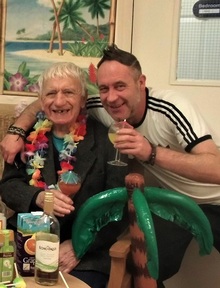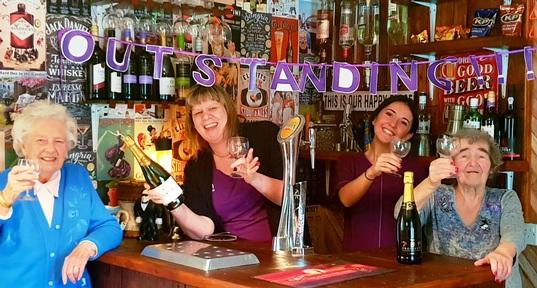Robots to care for elderly and check if they are happy or sad
Robots are being created to help care for older people, find out if they are sad, happy or angry and check they are hydrated and have taken their medication.

As well as caring for older people, researchers from Edge Hill University’s computer science department hope the robots will help autistic children.
The first prototype robot called Robbie has been taught to recognise 90 common objects as well as human actions and emotions. He can also guess the gender and age of a person and says phrases such as ‘you are eating a banana’ and ‘you are a male, aged 37 and you are happy today’.
Ardhendu Behera, senior lecturer in Computer Science who is leading the project, said: “There is lots of research involving robots and they are already used widely in industrial applications such as manufacturing, service sectors and health procedures such as keyhole surgery.
“However they are not yet used in the social care sector where we see huge potential for development and growth. Robots like Robbie could be used in so many situations and settings to monitor vulnerable people.”
Dr Behera hopes that Robbie and robots like him will become companions to the young and old and monitor their daily activities, anything from how many times and when they have a drink to what they eat and any activities they complete.
He sees Robbie, initially being “most useful in residential care homes where he can be a companion to residents and can keep an eye on them, watching and recording what they eat, drink, if they take their medication, their emotions and more.
“They could also be used in a traditional home setting, observing an older person between visits by a carer or relative for example. The possibilities are endless.”
It is hoped that the robots can also be used to diagnose learning disabilities such as autism. “It’s difficult to diagnose children in a short clinical session such as at a doctor’s surgery, but if a robot could report on the child’s behaviour and activity over say a 24 hour period this would massively help understand that child’s routine,” said Dr Behera.
The project stemmed from an eight-week summer project providing career development opportunities for students funded by the University’s Student Opportunity Fund.
Dr Behera is currently in talks with West Lancashire Borough Council and Home Instead Senior Care about trialling Robbie to gain ‘real’ data.
Latest Innovative Care News
 13-May-19
'Pink drink' brain cancer treatment rolled out across NHS in memory of Baroness Jowell
13-May-19
'Pink drink' brain cancer treatment rolled out across NHS in memory of Baroness Jowell
 25-Apr-19
Louis Tomlinson helps 83-year-old who lost wife to dementia complete bucket list
25-Apr-19
Louis Tomlinson helps 83-year-old who lost wife to dementia complete bucket list
 22-Mar-19
UK's top care home handyman takes residents to pub for pie and pint
22-Mar-19
UK's top care home handyman takes residents to pub for pie and pint
 12-Feb-19
Michael McIntyre's jokes tested to see if they stop elderly catching flu
12-Feb-19
Michael McIntyre's jokes tested to see if they stop elderly catching flu
 07-Jan-19
'We were lucky to find it': Family's delight as care home is rated Outstanding
07-Jan-19
'We were lucky to find it': Family's delight as care home is rated Outstanding